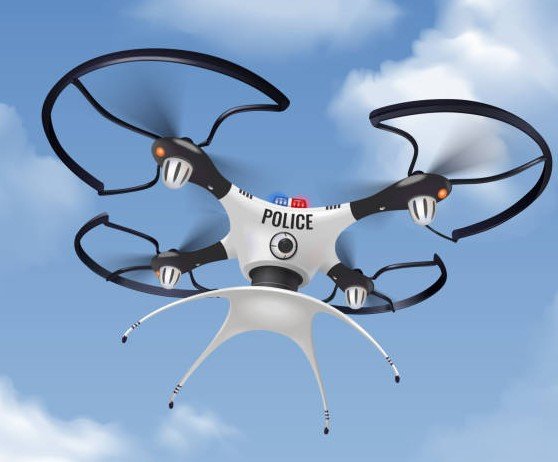Bosnia’s police forces are ramping up their use of cutting-edge tools like drones, facial recognition cameras, and even Starlink connections to tackle crime and traffic issues. But in 2025, many of these tech adoptions are happening without clear laws in place, raising questions about privacy and oversight in places like Zenica-Doboj Canton and Republika Srpska.
Tech Surge in Bosnia’s Law Enforcement
Police agencies across Bosnia and Herzegovina have boosted their tech arsenal this year. In Zenica-Doboj Canton, drones now patrol skies to spot traffic violations, capturing real-time footage that helps officers issue fines quickly.
This trend mirrors global shifts where law enforcement turns to advanced tools for better efficiency. For instance, in Sarajevo Canton, body cameras on officers record public interactions, aiming to build trust and provide evidence in disputes. Cities like Mostar and Tuzla have installed public cameras for monitoring roads, while Banja Luka in Republika Srpska uses Starlink antennas for reliable internet during operations.
Experts say these tools can cut response times and improve safety. A recent report from a European tech watchdog highlighted how drones reduced traffic accidents by 15 percent in similar setups elsewhere. In Bosnia, police officials claim these devices have already helped solve minor crimes, like identifying hit-and-run drivers through quick aerial scans.

But not all implementations follow a standard path. Some units rely on internal guidelines rather than national laws, leading to uneven practices across the country’s divided entities.
Legal Hurdles and Oversight Issues
The rapid rollout of these technologies often outpaces legal frameworks. In June 2025, Republika Srpska passed a new police law allowing anti-drone measures like signal jammers, but this clashes with the state-level Bosnia and Herzegovina Air Navigation Services Agency (BHANSA), which oversees drone registrations.
BHANSA updated its drone rules in August 2025 to promote safer skies, yet local police sometimes bypass these for urgent needs. Starlink’s use in Banja Luka stands out as a gray area; Bosnia’s communications regulator has not approved it as an official provider, leaving its legality in doubt.
Privacy advocates warn of risks. Without strict laws, facial recognition could lead to misuse, such as tracking innocent people. A 2025 study by an international rights group found that unchecked tech in policing increased false positives in identifications by up to 20 percent in regions with weak regulations.
Here are key legal gaps observed in Bosnia’s tech use:
- Drone operations lack uniform national standards, varying by canton.
- Facial recognition cameras operate under internal police rules, not public laws.
- Starlink integrations ignore telecom approvals, potentially violating data security norms.
These issues echo broader European debates, where the EU’s AI Act from 2025 pushes for more oversight on high-risk tech in law enforcement.
Real-World Cases Highlight Impact
High-profile incidents show how these tools deliver results, even amid controversy. In November 2023, Sarajevo police used Interpol’s biometric system with facial recognition to catch a human smuggling suspect, leading to a swift arrest.
More dramatically, in October 2023, assassins from Sweden targeted a crime boss in Sarajevo. Tech like surveillance cameras helped track and apprehend them after they fled, preventing further violence. This year, drones in Zenica-Doboj Canton identified over 500 traffic offenders in just months, according to local ministry data.
Such successes fuel enthusiasm. Police in Tuzla recently added AI-enabled cameras that spot speeding vehicles automatically, reducing manual patrols. Yet, critics argue these wins come at a cost to civil liberties, especially without laws ensuring data protection.
A table below outlines tech adoption by region in 2025:
| Region | Tech Used | Primary Purpose | Legal Status |
|---|---|---|---|
| Zenica-Doboj Canton | Drones | Traffic monitoring | Internal rules only |
| Republika Srpska | Starlink, anti-drone guns | Operations connectivity | New law, but disputed |
| Sarajevo Canton | Body cameras | Public interactions | Partial regulation |
| Mostar and Tuzla | Facial recognition cameras | Crime and traffic watch | No specific laws |
This data shows a patchwork approach, with some areas advancing faster than others.
Balancing Innovation with Rights
As Bosnia integrates more tech, experts call for balanced reforms. Cybersecurity specialist Damir Softic notes that while tools like facial recognition boost efficiency, they need ethical guidelines to prevent abuse.
Recent events, such as the 2025 EU push for AI regulations, could influence Bosnia. The country might adopt similar standards to align with potential EU membership goals. Meanwhile, public debates on social media highlight growing concerns, with users sharing stories of perceived overreach.
Looking ahead, police leaders plan to expand drone fleets and camera networks by 2026. This could enhance security but requires urgent legal updates to protect privacy.
Global Trends and Local Lessons
Bosnia’s situation reflects worldwide patterns. In the US and EU, 2025 saw debates on facial recognition bans in policing, with some cities opting for restrictions to curb surveillance risks. Bosnia could learn from these, implementing audits and public input.
Locally, the divide between entities like the Federation and Republika Srpska complicates uniform rules. A proposed national tech oversight body, discussed in parliament this summer, might bridge gaps.
Citizens benefit from safer streets, but transparency is key. Ongoing trials in Banja Luka with anti-drone tech aim to counter unauthorized flights, potentially setting a model for responsible use.
What do you think about police tech in Bosnia? Share your views in the comments and spread this article to spark discussion.







